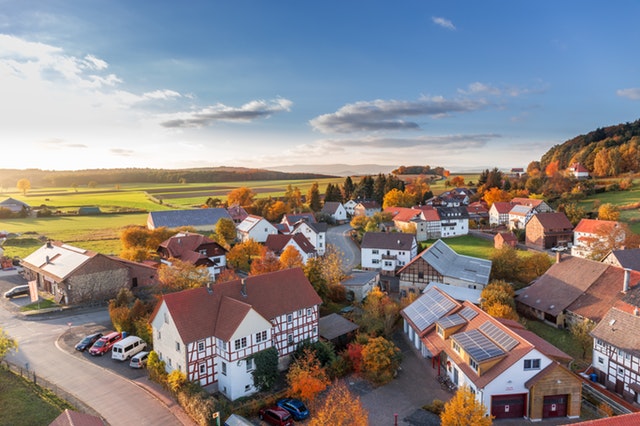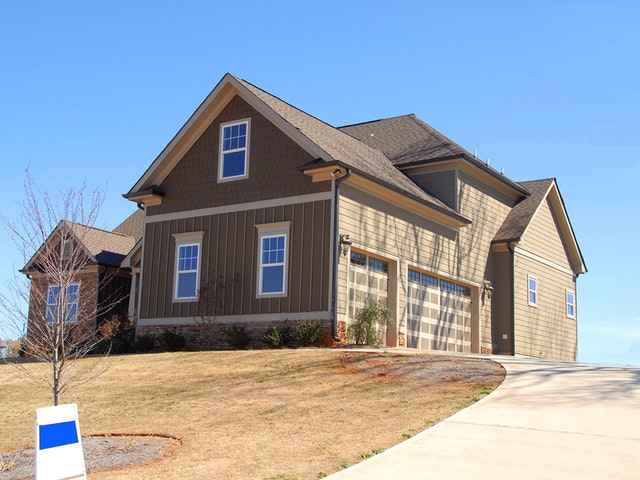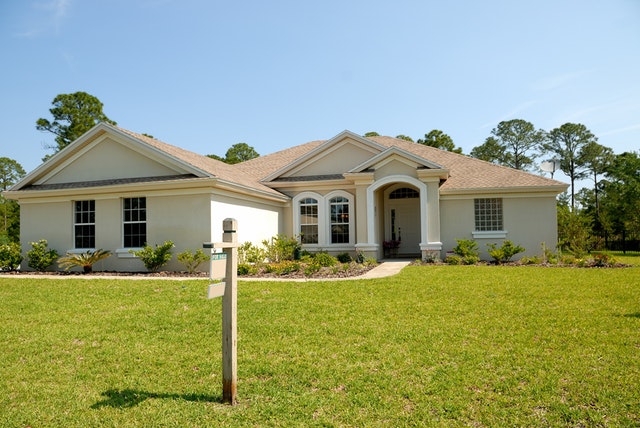 For many Americans, retirement age is fast approaching or already here: Baby Boomers account for nearly 75 million individuals in the United States.
For many Americans, retirement age is fast approaching or already here: Baby Boomers account for nearly 75 million individuals in the United States.
Retirement can present a lot of opportunities, especially when it comes to relaxation, activities, and the enjoyment of life with those of a similar age. More and more Americans are looking to 55+ communities to fulfill those wants and needs.
Active Adult Communities
55+ communities, also known as an active adult or age-restricted communities, are becoming increasingly popular throughout the U.S. because of what they offer and can provide. Traditionally thought to be only in warmer climates, active adult communities can be found in almost every state, and with more people retiring, new communities are being added every year.
Just like buying in a regular neighborhood or a master-planned community, there are a number of things to know or understand when it comes to investing in an active adult community and lifestyle. If you’re considering selling your current home and relocating to a 55+ community, here are some important things to consider before the big move.
Location
Location is an important consideration. Active adult communities can be found all throughout the U.S. While Florida and Arizona are known for their 55+ communities, it’s very likely there’s a community close to where you currently live.
Location is more than just where the community is located – location includes the proximity to towns or cities. Some may want a community that is cut off from large cities; others may want to be close to large metropolitan areas for what they can offer.
Location also includes things like local taxes – some states are much friendlier to retirees than others when it comes to taxes.
It’s also important to note the community’s location relative to an international airport if you plan on traveling a lot, medical centers, and other amenities that may be frequented daily or weekly.
Size
The size of the community is an important part of the community experience for residents. Communities will range in size, from just a couple hundred residents to thousands. The larger the community, the more residents.
Larger communities may offer more activities and amenities while smaller ones may be able to offer more comfort and relaxation with the reduced number of residents. If you’re interested in maintaining an active lifestyle and making friends, a larger community may be a better choice than a smaller one.
It’s also important to note that a larger community may offer more deals or incentives to those looking to buy within the community.
Amenities
Amenities are incredibly important when considering buying a home in an active adult community. A larger community will likely have a number of amenities and events while a smaller community may be limited in terms of what it can provide to homeowners.
When looking at communities, ask about the amenities provided within the community: is there a golf course, tennis courts, clubhouse, rec center, or arts and crafts studio?
Are there any clubs, group activities, or social events?
Does the community provide ample amenities to maintain an active lifestyle?
It is important to ask whether a membership is required to partake in any activities (especially with things like golf, tennis or the use of a clubhouse or rec center). If so, a membership structure within the community may add extra costs to the community.
HOA
Homeowners Associations have become increasingly popular within planned communities, and 55+ communities are no different. An HOA may have additional say on things within the community than in a regular neighborhood.
While maintaining the general areas, an HOA in an active adult community may also dictate whether a homeowner can grill outside, park a car on the street rather than in a garage, and some may go as far as to dictate the time of day a homeowner can have a conversation on a patio or deck.
While an HOA helps maintain the look and feel of a community as a whole, an overbearing HOA or homeowners board can possibly make living in a retirement community not very enjoyable for some individuals.
Living In Place
Another option to consider is whether the community offers a “living in place” option. This is still a relatively new concept but it is becoming more and more popular.
Living in place options offer homeowners the ability to buy a home in a community when they’re still active and able to live without accommodations. Then, should one’s health change or it becomes more difficult to live independently, the homeowners are able to move to a fully furnished apartment or condo within the community where cleaning, cooking and other services are provided.
These options allow homeowners to stay in one community through each phase of their retirement. More expensive than traditional active adult communities, they are a viable option for those planning for the long run.
Retirement is an exciting time. Finding a community that supports retirees and provides a place for relaxation is important for many people. If you’re looking at active adult communities, reach out to your trusted real estate agent to get more information about local communities in your area.
A 55+ community can be a great choice for those looking to enjoy retirement with other retirees. Happy hunting!
 Last week’s economic reports included analyst assertions that U.S. housing markets are overvalued in over 50 percent of markets. Weekly reports on mortgage rates and first-time jobless claims were also released.
Last week’s economic reports included analyst assertions that U.S. housing markets are overvalued in over 50 percent of markets. Weekly reports on mortgage rates and first-time jobless claims were also released.
 It pays to start with a solid strategy when you have to house hunt from afar.
It pays to start with a solid strategy when you have to house hunt from afar. For many Americans, retirement age is fast approaching or already here: Baby Boomers account for nearly 75 million individuals in the United States.
For many Americans, retirement age is fast approaching or already here: Baby Boomers account for nearly 75 million individuals in the United States. On the surface, a short sale seems like the perfect deal. However, before you take the plunge, you need to understand how this type of home purchase works.
On the surface, a short sale seems like the perfect deal. However, before you take the plunge, you need to understand how this type of home purchase works. When a homeowner stops making regular mortgage payments, the bank can foreclose on the property. This means that the bank takes possession of the property in an attempt to recover the debt the homeowner owes. In some cases, the bank may try to recover this debt by selling the property at auction. In other cases, the bank will simply list the foreclosed home for sale.
When a homeowner stops making regular mortgage payments, the bank can foreclose on the property. This means that the bank takes possession of the property in an attempt to recover the debt the homeowner owes. In some cases, the bank may try to recover this debt by selling the property at auction. In other cases, the bank will simply list the foreclosed home for sale.